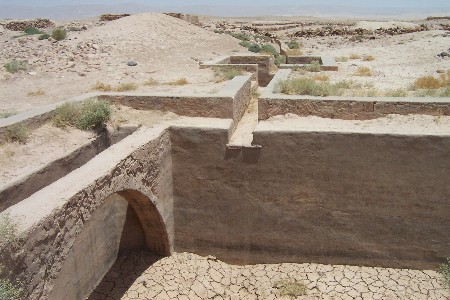The Nabataean city of Humeima (ancient Hawara) an
important historical site, as it is a city that was founded by the Nabataeans,
and survived only into the Byzantine era. During the Muslim conquests, the
Abbasid family maintained a large house and a mosque here, and from this site
they launched their takeover of the Muslim Empire. The Muslim section of the
city was on the south side, and probably much of the city was in ruins during
their time, due to several devastating earthquakes. (19 May 363; 9 July 551)
Ancient Hawar was the only substantial settlement in the Hismā Desert in
southern Jordan some 40 kilometers south of Petra. The environment is bleak
desert characterized by sparse desert vegetation. A limited amount of
agriculture and animal husbandry is possible in the area. Today only a few
nomads live seasonally in the vicinity of the site; the modern village of New
Humayma is located some 7 kilometers to the southeast.

Ancient Hawar was a small trading post and caravan
way-station in Edom. It was founded by the Nabatean King Aretas III (87-52 BC)
probably to serve as a centre for sedentarization of the nomadic Nabatean
pastoralists who occupied the area. In 106 AD the Nabatean Kingdom became the
Roman Province of Arabia and shortly thereafter a 500 person Roman fort was
built at Hawar. The modest settlement prospered into the Byzantine period as
indicated by the 5-6 churches identified on the site.
|